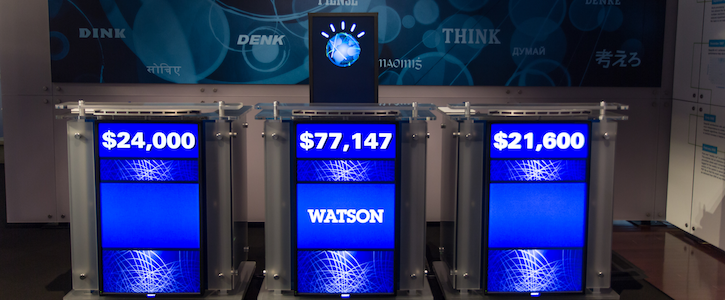How Sanofi and IBM Watson Unearthed a New Diabetes Finding
And they highlighted the promise of real-world data and machine learning to answer tough clinical questions.

Image has been resized. Credit: Atomic Taco, Flickr, Wikimedia Commons
If it doesn’t work quickly, it probably won’t work at all. That’s the general takeaway of a new study of the response of patients with diabetes to the use of basal insulin in routine care, according to the pharma company Sanofi and the artificial intelligence (AI) maven IBM Watson Health.
Positive response “declined rapidly” when patients didn’t achieve blood sugar control in the first year of treatment, according to the organizations, which unveiled their results today at the International Diabetes Federation Congress in Abu Dhabi. Although one-third of patients attained glycemic control in the first year, the rest saw the likelihood that they would reach this goal decline to roughly 3 percent for each 3-month period up to 2 years, according to the companies.
But for the tech crowd, how Sanofi and Watson came to these findings might be equally interesting as the insights.
The analysis focused on adults with type 2 diabetes, analyzing electronic health records (EHRs) from 5936 American patients, who were taking at least 1 oral anti-diabetics when they obtained their initial basal insulin prescription and had valid data for 180 consecutive days of treatment. The IBM Explorys tool scanned EHRs to target the participants, whose outcomes were examined only for the time in which the big data platform recorded their information.
“Leveraging real-world data and evidence to understand clinical outcomes in day-to-day diabetes management can provide insights for a disease that is difficult for providers and especially patients to manage,” said Kyu Rhee, MD, IBM Watson Health’s chief health officer, in a statement. “This study demonstrates how leaders like Sanofi can apply real-world data and machine learning technologies to a clinical question.”
The EHR-based retrospective observational analysis carries limitations, according to researchers. For one, the database includes patients under “specific conditions,” meaning that findings might not be applicable to the population of the country or the world. Most of the patients were insured and willing to seek care.
What’s more, according to Sanofi and IBM, the EHR data “are not completed for research purposes and vary in completeness of variables of interest.” Indeed, healthcare widely acknowledges the potential—and pitfalls—of EHR information, which is often unstructured or locked up. But this study, along with 3 others, show “the value of real-world data, analytics, machine learning, and expertise,” the companies noted.
And this relates to a real-world problem, said Riccardo Perfetti, Sanofi's senior medical officer and vice president of global medical affairs for diabetes. “While basal insulin plays a central role in treating diabetes, reluctance to intensify treatment may be preventing people from reaching their goals if basal insulin is not sufficient,” he said in a statement.
When patients with diabetes reach their blood glucose targets early, they have less risk of microvascular complications, Lawrence blonde, MD, who heads clinical research of diabetes in the Department of Endocrinology at the Ochsner Medical Center in Louisiana. “This observational study demonstrated the potential consequences of continuing, rather than intensifying, diabetes treatment that has not achieved glycemic targets, especially as long as 1 year after initiating basal insulin treatment.”
The study found that patients who are 6 months out have a 19.7% change of success. That dwindles to 10.9% by month 9 and 1.9% by month 12. The number rises to 3.1% by month 18 and 3.5% by month 24, according to the study.